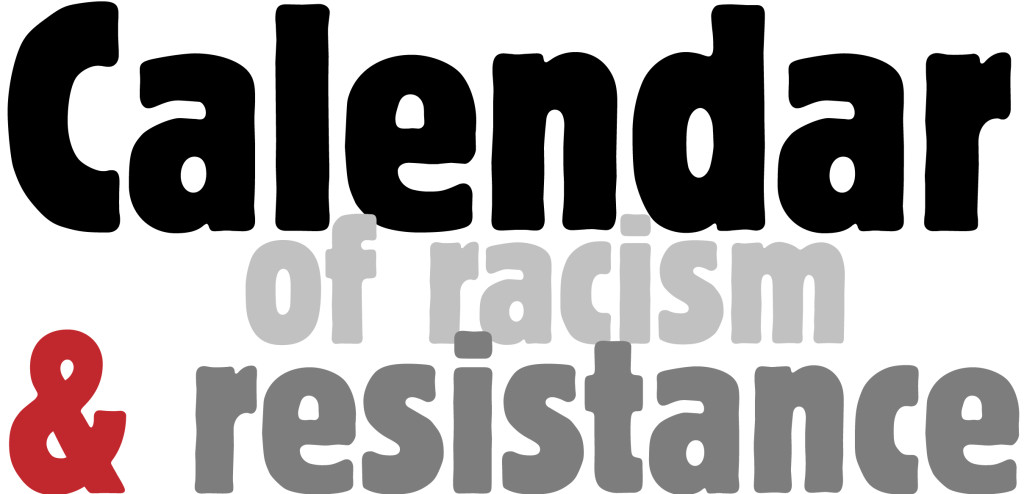A fortnightly resource for anti-racist and social justice campaigns, highlighting key events in the UK and Europe.
ASYLUM, MIGRATION AND CITIZENSHIP
REFUGEES AND THE LIBYAN CONFLICT
25 April: The Guardian releases footage of militias believed to be linked to the warlord Khalifa Haftar opening fire on refugees at the Qasr bin Ghashir detention centre, 12 miles south of Tripoli, in an attack that reportedly left two people dead and up to twenty injured. Amnesty International calls for a war crimes investigation of the incident, while the UNHCR evacuates 325 people from the detention centre. (Guardian, 26 April 2019)
29 April: In a joint operation between Italy, UNHCR and the Libyan ministry of interior, 146 refugees are evacuated from Libya during a humanitarian pause in the conflict. (UNHCR, 29 April 2019; The Local, 29 April 2019)
2 May: Al Jazeera reports that migrants and refugees are going without food and drinking dirty water at the Abu Salim detention centre in southern Tripoli, with serious consequences for the sick, including twenty detainees suffering from tuberculosis. (Al Jazeera, 2 May 2019)
BORDERS, TRANSIT ZONES AND INTERNAL CONTROLS
23 April: A video shows a group of 12 Iraqi refugees, including a 3-year-old child, locked in a cage in Klobuk, a village in Bosnia and Herzegovina located near a border crossing with Croatia. One of the detainees filmed the video and sent it to pro-migrant charity Are You Syrious, which claims that the detainees were held overnight. (Independent, 23 April 2019)
23 April: Greek police raid an unauthorised refugee camp in Athens’ Elaionas district, with the migration ministry claiming that they were called in by the camp’s directors after clashes between residents and new arrivals ejected from a nearby squat. (Ekathimerini, 23 April 2019)
25 April: A week after Salvini announced that NGO rescue vessels would no longer be allowed to travel through Italian waters, the Mare Jonio, which rescued 49 migrants off the Libyan coast last month, is declared unfit for rescue operations by Italian coastguard inspectors in Sicily. (The Local, 25 April 2019)
25 April: A welfare reform passed by the conservative Austrian government will mean immigrants receive €300 less per month than the current standard minimum welfare payment of €885, unless they can prove German or English language skills. In 2017, nearly half of those receiving the payment were immigrants. (Info Migrants, 29 April 2019)
26 April: The Hungarian Helsinki Committee claims that Hungarian authorities are continuing to refuse food to failed asylum seekers detained in the country’s border transit zones. Prime minister Orbán’s spokesman dismissed criticisms, but the HHC says the government may be breaching international human rights law. (Guardian, 26 April 2019)
27 April: The National Audit Office launches a formal investigation into the ‘English test scandal’, the Home Office’s 2014 decision to revoke or curtail the visas of around 34,000 international students it accused of cheating in English language tests. Over 1,000 were deported and many have spent time in detention, but over 300 court of appeal cases have been brought by international students who claim they were wrongly accused. (Guardian, 23 April 2019; Guardian, 27 April 2019)
29 April: The Berlin-based NGO Mare Liberum e.V says that Germany’s Federal Ministry of Transportation has effectively suspended its operations in the Aegean Sea due to its reclassification of the Mare Liberum as a commercial freightliner, imposing equipment requirements it cannot fulfil. (Enough is Enough, 29 April 2019)
30 April: Fifteen Turkish asylum seekers who crossed the Evros river into northeast Greece were pushed back and beaten by masked men with batons, says journalist Tugba Ozkan who was with the group. A few of them managed to cross again, with the Hellenic League saying that this is part of a pattern involving Greek security services. (IPA News, 30 April 2019)
2 May: Home Office data obtained by the Bristol Cable and the Bureau of Investigative Journalism shows that in the UK’s 11 largest cities nearly 6,000 British citizens were stopped for immigration checks between January and October 2018, more than any other nationality. Only 5 were arrested, raising concerns that ethnicity and colour are being unlawfully used as a basis for ‘reasonable suspicion’. (Guardian, 2 May 2019)
3 May: The NGO Mediterranea accuses Malta of colluding with the Libyan coastguard after it intercepted a boat carrying around 100 asylum seekers that was sailing towards Lampedusa. A Maltese military aircraft guided the vessel back to a Libyan to an unsafe port, the NGO says. (The National, 3 May 2019)
7 May: The German search and rescue vessel Sea Watch 3, which sails under a Danish flag, says it will resume its operations in the Mediterranean sea after a court in the Hague criticised the Dutch Water Management Ministry for issuing it with new safety regulations, without giving it sufficient time to transition to the new code. (InfoMigrants, 5 August 2019)
ASYLUM AND MIGRANT RIGHTS
26 April: The latest statistics released by Eurostat, the EU’s statistics agency, show that 333,400 people were granted asylum in EU member states in 2018, a 40 per cent drop compared to 2017. (Info Migrants, 26 April 2019; Info Migrants, 29 April 2019)
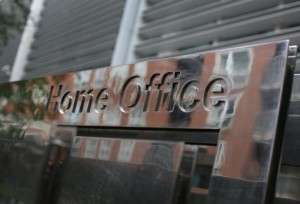 7 May: The Guardian reveals that the Home Office is abandoning its target of processing most asylum claims within six months. Humans rights lawyers say that the Home Office should expect an increase in legal challenges should the decision lead to further delays for asylum seekers. (Guardian, 7 May 2019)
7 May: The Guardian reveals that the Home Office is abandoning its target of processing most asylum claims within six months. Humans rights lawyers say that the Home Office should expect an increase in legal challenges should the decision lead to further delays for asylum seekers. (Guardian, 7 May 2019)
RECEPTION AND DETENTION
26 April: Italian humanitarian organisation Intersos warns that since the ‘Salvini Decree’ was approved last December many migrant youths have become homeless after being forced to leave reception centres after turning eighteen. It says that the situation is particularly acute in Sicily, which hosted over 40 per cent of all unaccompanied minors in Italy in 2018. (Info Migrants, 26 April 2019)
28 April: Whistleblowers from within the Home Office’s Dublin Cessation Team (DCT), responsible for transferring asylum seekers to other EU member states, claim that failings are being made by ‘overworked, under-skilled, bullied and high-stressed’ DCT caseworkers. These include the unlawful detention of asylum seekers for up to six weeks, as well as asylum application rejections and deportations without properly considering an individual’s case. (Guardian, 28 April 2019; Guardian, 28 April 2019)
1 May: The Danish immigration minister Inger Støjberg tells a parliamentary hearing that refused asylum seekers detained in Sjælsmark deportation camp will continue to be prohibited from having their own kitchen facilities to make their own food. Rejecting the recommendations of the Danish Red Cross, she says that government wants these people to understand they are ‘not welcome in Denmark and should travel home’. (The Local, 1 May 2019)
7 May: Over 80 civil society groups submit a report to the United Nations Committee Against Torture highlighting the UK’s failure to adhere to international human rights standards, including the absence of a time limit on immigration detention and the detention of people who have been victims of torture. (Guardian, 7 May 2019)
CITIZENSHIP
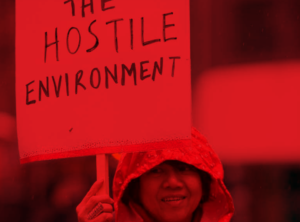 1 May: A cross-party group of 87 MPs sign a letter to the Equality and Human Rights Commission, requesting an investigation into whether the Home Office’s ‘hostile environment’ policies are institutionally racist and constitute a breach of the department’s public sector equality duty. (Guardian, 1 May 2019)
1 May: A cross-party group of 87 MPs sign a letter to the Equality and Human Rights Commission, requesting an investigation into whether the Home Office’s ‘hostile environment’ policies are institutionally racist and constitute a breach of the department’s public sector equality duty. (Guardian, 1 May 2019)
6 May: Home Office data obtained by Citizens UK shows that 900 children classified as stateless were forced to pay the £1,012 fee for their applications to become British citizens, despite a Home Office spokesperson’s claim that stateless individuals who have spent a significant amount of time in the UK should be exempt. (Guardian, 6 May 2019)
RAIDS AND DEPORTATIONS
5 May: The German NGO Pro Asyl commends the moral stance taken by pilots after figures released by the German federal police reveal that in 2018, pilots refused to carry out deportation flights in 506 cases, compared to 314 instances in 2017. (Taz, 7 May 2019)
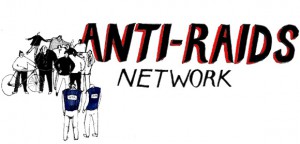 7 May: Protesters chanting ‘stop deportations’ confront police and immigration enforcement officers outside a building site in Brighton during an immigration raid. 17 men, identifying themselves as Albanian, Indian, Ukrainian and Kazakhstani, are arrested for immigration offences. (BBC News, 7 May 2019)
7 May: Protesters chanting ‘stop deportations’ confront police and immigration enforcement officers outside a building site in Brighton during an immigration raid. 17 men, identifying themselves as Albanian, Indian, Ukrainian and Kazakhstani, are arrested for immigration offences. (BBC News, 7 May 2019)
ANTI-FASCISM AND THE FAR RIGHT
23 April: At the Old Bailey, two teenagers belonging to the neo-Nazi Sonnenkrieg Division group plead guilty to encouraging acts of terrorism. (Telegraph, 23 April 2019)
24 April: In Milan’s Piazzale Loreto square, where Mussolini’s corpse was publicly displayed in 1945, masked neo-fascist supporters of Italian Serie A team Lazio hold a flash mob with a banner reading ‘Honour to Benito Mussolini’, while singing fascist songs and making Nazi salutes. (France 24, 24 April 2019)
26 April: Memorials to Italians who fought fascism are vandalised in Sicily, Tuscany, Bologna, Rome and in the vicinity of Milan. In Rome, far-right groups including Azione Frontale hold a counter rally to celebrations of Italy’s liberation from the Nazis in the rest of the city, and an anti-fascist café bookshop suffers a fire that may have been started by explosives. (The Local, 26 April 2019)
 28 April: The far-right Vox party win 10 per cent of the vote in the Spanish general election, entering parliament for the first time with 24 seats. The right wing People’s Party, which attempted to sideline Vox by mirroring its anti-immigration policies, were punished at the polls, losing 71 seats. (Guardian, 29 April 2019)
28 April: The far-right Vox party win 10 per cent of the vote in the Spanish general election, entering parliament for the first time with 24 seats. The right wing People’s Party, which attempted to sideline Vox by mirroring its anti-immigration policies, were punished at the polls, losing 71 seats. (Guardian, 29 April 2019)
30 April: 21-year-old white supremacist Shane Fletcher, who plotted to massacre members of the public in his Cumbrian hometown of Workington, is jailed for 9 years. Detained in March 2018, he described himself as ‘a big fan of Hitler’ in police interviews. (Independent, 30 April
1 May: In Sweden, hundreds of neo-nazis from the Nordic Resistance Movement march on May Day in Kungälv, north of Gothenburg, and in Ludvika, central Sweden. Police, who clash with counter-protesters as they attempted to get near the neo-nazi rally, make eighteen arrests in Kungälv. (The Local, 1 May 2019)
1 May: Around 200 people, many in uniform, and some carrying posters stating ‘Israel is our downfall’ attend a neo-nazi Die Rechte (The Right) rally in Dusiburg, while in Plauen, Saxony, 500 people, beating drums and appearing to imitate the Hitler Youth, attend a march organised by the Third Path. The Central Council of Jews in Germany criticise the policing of both events. (The News Tribune, 2 May 2019)
1 May: In Brno-střed, Czech Republic, hundreds of anti-fascists block 50 supporters of the National and Social Front marching in the city centre with the neo-nazi demonstrators, including Vlastimil Pechanec, previously convicted of the racially-motivated murder of a Romani man in Svitavy, forced to take a different route. (Romea, 3 May 2019)
2 May: For the second time in two days, far-right leader Tommy Robinson is doused in milkshake while on his campaign trail for the upcoming European elections. The Asian man who threw the second milkshake, in Warrington, says he has been receiving death threats. Two others require hospital treatment after being attacked without provocation by Robinson’s security team. (Guardian, 3 May 2019; Guardian, 5 May 2019)
2 May: 33-year-old David Shufflebottom, a member of the far-right group Stoke-on-Trent Infidels, is jailed for 15 months for Islamophobic social media posts and for orchestrating a Britain First march in Burslem, at which he was seen shouting racist and Islamophobic abuse. (Manchester Evening News, 2 May 2019)
5 May: The far-right Hard Line party (Stram Kurs), which is calling for the deportation of 700,000 Muslims and is led by lawyer Rasmus Paludin, is to stand for the first time in the Danish general election in June after getting the required 20,000 signatures. (Guardian, 5 May 2019)
7 May: Police begin investigating UKIP MEP candidate Carl Benjamin, known online as the far-right Youtuber Sargon of Akkad, after it emerged that he tweeted Labour MP Jess Phillips in 2016 saying ‘I wouldn’t even rape you’. (Guardian, 7 May 2019)
ELECTORAL POLITICS
24 April: Nora Mulready, one of Change UK’s MEP candidates, is accused of racism for conflating Islam and terrorism and saying that Tommy Robinson’s concerns must be ‘acknowledged’. Two other candidates for the newly-registered centrist political party, Joseph Russo and Ali Sadjady, were forced to resign earlier this week over racist comments. (Independent, 24 April 2019)
25 April: Extreme-right party leaders, including Rassemblent National leader Marine le Pen and Dutch Freedom Party leader Geert Wilders, meet in Prague’s central Wenceslas Square to launch their Europe of Nations and Freedom (ENF) European election campaign. They are hosted by Czech lawmaker Tomio Okamura, leader of the Freedom and Direct Democracy (SPD) party. (RT, 25 April 2019)
25 April: The anonymous Twitter account @matesjacob reveals 40 new self-professed Conservative Party members who have shared or endorsed racist or inflammatory Facebook posts, including two local council candidates who have now been suspended pending investigations. (Guardian, 25 April 2019)
28 April: Heinz-Christian Strache, the Freedom party (FPÖ) deputy chancellor of Austria is criticised for endorsing far-right terminology in an interview with the Krone newspaper in which he said that the FPÖ is fighting ‘replacement’ of the native population. Subsequently, sport minister Norbert Hofer said, in an interview with Profil magazine, that ‘mass immigration is turning Austria into a country with a Muslim majority’. (Guardian, 29 April 2019) (Guardian, 29 April 2019)
29 April: A Conservative Party district council candidate in Somerset is suspended for making a series of anti-immigrant Facebook posts over the last few months, although it is too late for his name to be removed from the ballot. (BBC News, 29 April 2019)
29 April: Slovakia’s Supreme Court dismisses a request by the prosecutor general to ban the far-right People’s Party of Slovakia that has 14 seats in parliament, saying there is insufficient evidence to label the party a threat to democracy. (Star Tribune, 29 April 2019)
5 May: The governing Fidesz party launches a campaign video for the European parliamentary elections that uses the case of a suspected Syrian terrorist recently arrested in Hungary as an argument for stopping the current pro-migration policy of Brussels. (Hungary Today, 5 May 2019)
6 May: In the northern Austrian town of St Martin im Innkreis, the deputy leader of the far-right Freedom Party resigns after sharing posts on social media that appeared to deny the Holocaust. (Euronews, 6 May 2019)
POLICE AND CRIMINAL JUSTICE SYSTEM
25 April: The Ministry of Justice releases its latest Safety in Custody statistics, showing a significant increase in the number of deaths and a 25 per cent increase in incidents of self-harm in prison in the year to December 2018. Inquest says that an ‘unacceptable number’ of the 164 deaths officially attributed to ‘natural causes’ were the result of poor healthcare in prison. (Inquest, 25 April 2019; Guardian, 25 April 2019)
25 April: In Romford, east London, a plainclothes police officer is filmed striking a handcuffed black 17-year-old boy with a cosh soon after he and his 14-year-old friend were stopped and searched. After the video of the incident goes viral and prompts online outrage, a spokeswoman for the Met Police says that the incident is being reviewed. (Metro, 25 April 2019)
27 April: A multi-agency ‘public health’ approach to the root causes of youth knife crime is the only long-term solution to the problem, a College of Policing report argues. The government-backed body also finds that stop and search has only short-term benefits, while incarceration significantly increases the likelihood of reoffending. (Guardian, 27 April 2019)
29 April: 2,666 prison staff have faced disciplinary action between mid-2013 and mid-2018, Ministry of Justice data obtained by the Guardian reveals. The most common offences were breach of security and assault or using unnecessary force on prisoners, while others included racial harassment, trafficking, and having ‘inappropriate relationships’ with a prisoner. (Guardian, 29 April 2019)
30 April: A new report by drug policy think-tank Volteface shows that the number of 14- to 18-year-olds convicted for possession with intent to supply drugs has increased by over two-thirds between 2012 and 2017, while school exclusions for drugs and alcohol have increased by 57% over the same period. (Guardian, 30 April 2019)
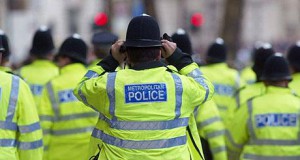 4 May: Internal Home Office data analysed by Liberty shows that in the year to March 2018, black people were 40 times more likely to be stopped and searched in England and Wales than white people, meaning that Sajid Javid was likely aware of the racial disproportionality of the practice before he recently made it easier for police to use. In the year to April 2019, the Met recorded an overall 40 per cent rise in stop and searches. (Guardian, 4 May 2019)
4 May: Internal Home Office data analysed by Liberty shows that in the year to March 2018, black people were 40 times more likely to be stopped and searched in England and Wales than white people, meaning that Sajid Javid was likely aware of the racial disproportionality of the practice before he recently made it easier for police to use. In the year to April 2019, the Met recorded an overall 40 per cent rise in stop and searches. (Guardian, 4 May 2019)
YOUTH SERVICES
7 May: A report by the All-Party Parliamentary Group on Knife Crime finds that the areas most decimated by cuts to youth services have seen large increases in knife crime, suggesting a connection between austerity and serious youth violence. The group’s chair, Sarah Jones MP, urges the government to review youth funding and to consider making the provision of certain services a legal duty for councils. (Independent, 7 May 2019)
DISCRIMINATION
3 May: Mirandola council near Modena, Italy, vows to support a woman excluded from a local gym for wearing the veil with the owner, she says, refusing her membership as she was dressed in a ‘not-very-western way’, adding that he ‘doesn’t allow nuns or Batman’ to use the gym. (Guardian, 3 May 2019)
EDUCATION
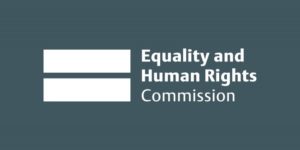 30 April: Equality watchdog Trevor Phillips criticises the decision to appoint Prof Martin Millett, a white academic specialising in Roman archaeology, to oversee the University of Cambridge’s two-year academic inquiry into how the institution benefited from slavery and other forms of forced labour during the colonial period. The two full-time researchers carrying out the study will also investigate the ways in which ways in which scholarship reinforced, validated or challenged race-based thinking. (Guardian, 30 April 2019; Guardian, 3 May 2019)
30 April: Equality watchdog Trevor Phillips criticises the decision to appoint Prof Martin Millett, a white academic specialising in Roman archaeology, to oversee the University of Cambridge’s two-year academic inquiry into how the institution benefited from slavery and other forms of forced labour during the colonial period. The two full-time researchers carrying out the study will also investigate the ways in which ways in which scholarship reinforced, validated or challenged race-based thinking. (Guardian, 30 April 2019; Guardian, 3 May 2019)
30 April: Following five months of protests by students and staff, St Edmund’s College, Cambridge terminates the research fellowship of Dr Noah Carl, whose non-peer-reviewed research makes connections between race, IQ and criminality. The College says that Dr. Carl has collaborated with people ‘known to hold extremist views’, and that there was a risk his position could be used to incite racial and religious hatred. (Varsity, 30 April 2019)
5 May: The University of Bristol begins advertising a permanent academic post to coordinate efforts by staff and community groups to investigate the university’s historical links to slavery. The political leaders of the city itself, which was one of three key British ports for slave traders, are also planning a ‘permanent memorial’ to its slave trade past. (Guardian, 5 May 2019)
6 May: Data from 92 UK universities shows that 277 students have been sanctioned for posting racist, homophobic and transphobic comments on social media, as well as images of brandished weapons and other content deemed offensive. The director of the Runnymede Trust says that many more incidents are likely going unreported, and that moral panics about free speech are downplaying the threat of racism in universities. (Guardian, 6 May 2019)
7 May: A review of school exclusions, carried out by former Department for Education minister Edward Timpson, finds that 78 per cent of expelled children either had special educational needs, were eligible for free school meals, or were understood to be ‘in need’. It also finds that children from Afro-Caribbean backgrounds are 1.7 times more likely to be expelled than white British children. (Guardian, 7 May 2019)
MEDIA AND CULTURE
25 April: In the run up to the Spanish general election, Facebook takes down several far-right networks including that of Unidad Nacional Española (UNE), not for Islamophobic, fake and misogynistic content but for ‘coordinated inauthentic behaviour’. (Guardian, 25 April 2019)
27 April: A court rules that the German public broadcaster ZDF acted lawfully when it refused to air a pre-European parliamentary elections campaign advertisement for the far-right National Democratic Party of Germany (NPD). The commercial violates Germany’s criminal code and threatens public order by ‘maliciously attacking the dignity of foreign residents of Germany’, the court says. (Deutsche Welle, 27 April 2019)
7 May: The 90-foot-long fishing boat that sank in April 2015 in the Mediterranean between Libya and Lampedusa, leading to the deaths of the more than 700 migrants on board, is transported to Venice, where it will be displayed for visitors to the Venice Biennale. (Guardian, 7 May 2019)
7 May: Auschwitz-Birkenau state museum writes to Turin council stating that it will pull out of Turin’s international book fair if the Altafore publishing group, which has close links with the neo-fascist party Casa Pound, is allowed to participate. The Italian authors group Wu Mind and others are already boycotting the event. (Guardian, 8 May 2019)
HEALTH
April 26: A 34-year-old man from Cameroon, William Tonou-Mbobda, dies in intensive care at the University Hospital Hamburg-Eppendorf, where he was being treated for psychiatric reasons, just five days after being subject to ‘coercive measures’ by three hospital security guards. The hospital has been accused of racism, and the security officers remain on leave while the police investigate. (Spiegel, 29 April 2019; International News, 1 May 2019)
EMPLOYMENT AND EXPLOITATION
25 April: Home Office figures obtained by the Morning Star show that people in immigration detention would have earned £500,000 more so far this year had they been paid the minimum wage instead of £1 an hour for their labour. (Morning Star, 25 April 2019)
25 April: A new report by Oxford University’s Centre on Migration Policy and Society finds significant inequalities of outcome faced by ‘asylum migrants’ (those who came to the UK for asylum reasons, but are no longer asylum-seekers) in the labour market. They are less likely to be in employment, earn less and work fewer hours, and are more likely to be self-employed than UK-born people and other migrant groups. Read the report here. (Oxford University, 25 April 2019)
SPORT
28 April: In the northern Italian town of Trieste, organisers of a half-marathon taking place on 5 May reverse their decision, announced the previous day, to exclude African athletes from competing. Their claim that the aim of the ban was to highlight the exploitation of African athletes is dismissed by critics as racist. (Independent, 27 April 2019; Guardian, 28 April 2019)
27 April: Over 160 professional football clubs across Britain take part in the third ‘Football Welcomes’ campaign by Amnesty International, more than three times the number participating last year. The weekend of action includes free tickets being given to refugees and asylum-seekers alongside stadium tours, player visits, and local community events. (Morning Star, 23 April 2019)
6 May: The new Black, Asian and Minority Ethnic Football Forum, thought to be the first of its kind in the UK, reports that it has received evidence of children as young as seven experiencing racist abuse at matches. (BBC News, 6 May 2019)
RACIAL VIOLENCE AND HARASSMENT
24 April: In Dungannon, a town in Northern Ireland, ‘Muslims out’ graffiti is daubed on the back wall of a Syrian refugee family’s home. Around the same time, a stone is thrown at another Syrian refugee family’s nearby home. Police are treating both incidents as racially motivated hate crimes. (Irish News, 27 April 2019; Independent, 29 April 2019)
25 April: A report by Czech police shows that anti-Roma, anti-Arab and anti-Muslim crimes increased between 2017 and 2018, while those motivated by antisemitism decreased. While the number of charges and prosecutions for sympathisers of extremist movements decreased, expressions of online hatred have increased. (Romea.cz, 25 April 2019)
26 April: In Swansea, south Wales, racist graffiti saying ‘Muslim c*** scum is found on an outside wall of a family’s home. The mother-of-three says she ‘doesn’t feel safe’ there anymore. (Wales Online, 26 April 2019)
28 April: A man who was shown in a viral video racially abusing and assaulting a taxi driver on Easter Sunday in Dublin hands himself in to the Gardai. (Irish News, 28 April 2019)
7 May: Kenza Isnani, the daughter of Habiba and Ahmed who were shot dead by a militant far-right neighbour who then set fire to their home in 2002, launches a campaign to rename part of the Schaerbeek street in which the murders unfolded after her deceased parents. (The Brussels Times, 7 May 2019)
This calendar was compiled by Joseph Maggs with help from Graeme Atkinson, Jamie Wates and the IRR News Team.

